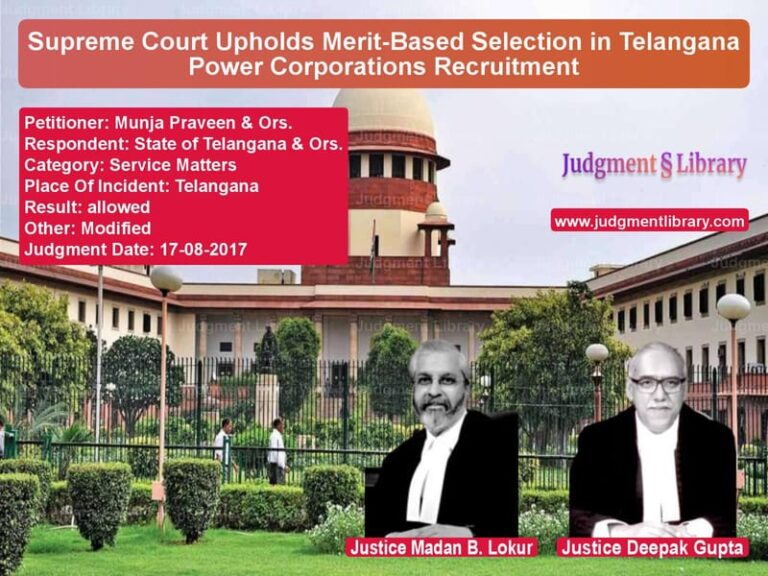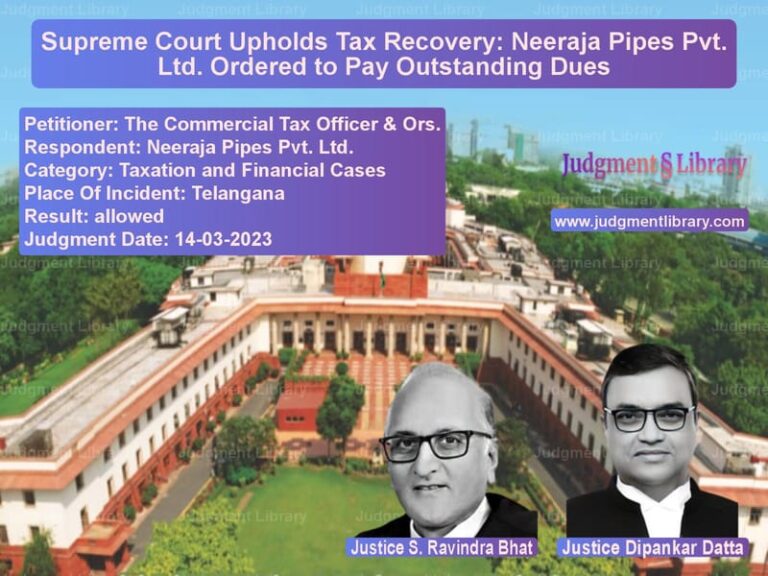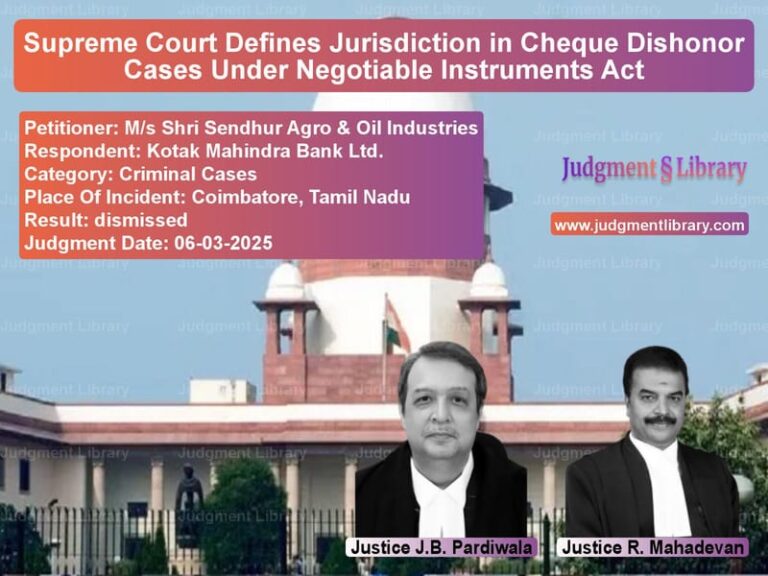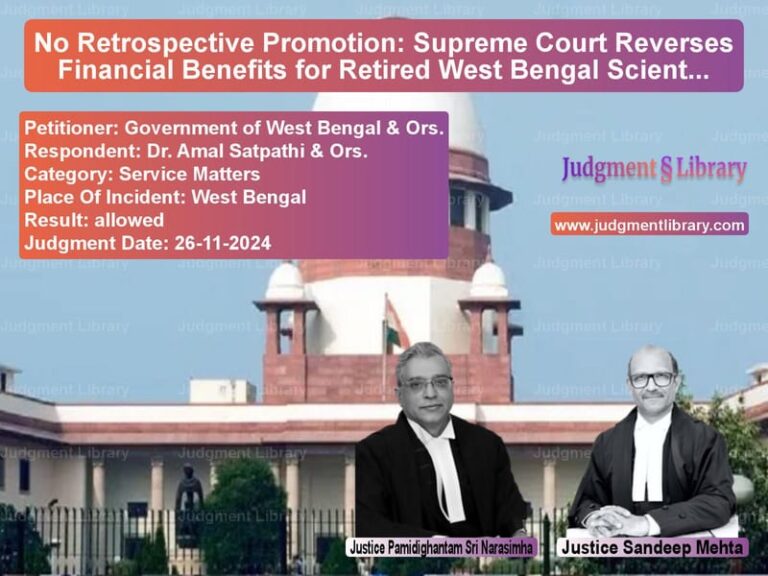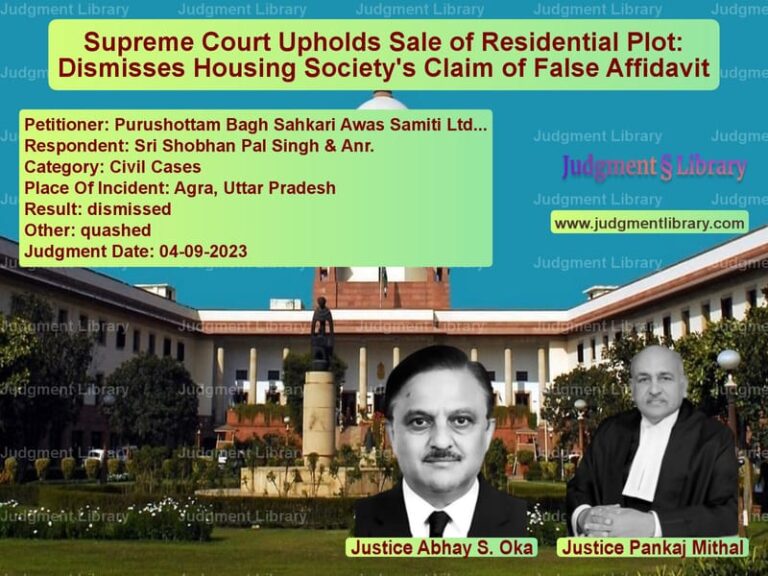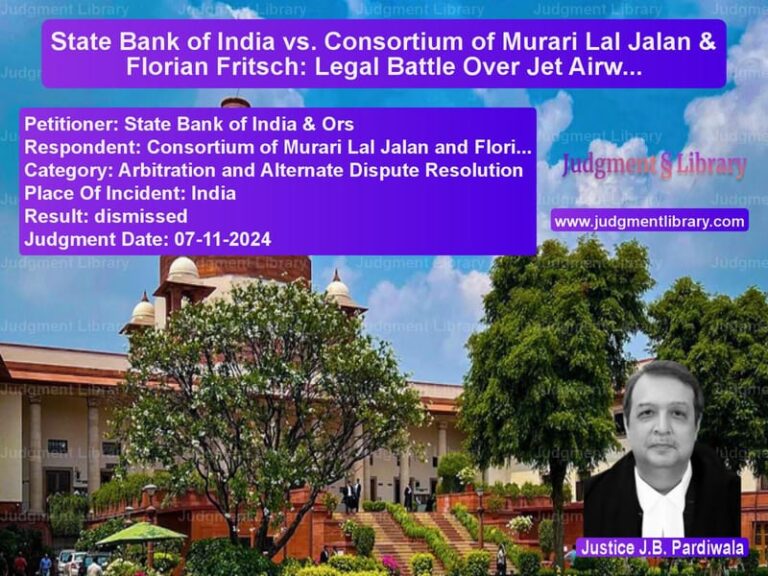Settlement Agreement Leads to Withdrawal of Transfer Petition in Family Dispute
In the case of Navneet Kaur v. Prabhjeet Singh Channa, the Supreme Court of India dealt with a transfer petition filed under Civil Original Jurisdiction, where the petitioner, Navneet Kaur, sought to transfer a case to another court. However, before the petition could be further processed, the parties reached a settlement, resulting in the petitioner deciding to withdraw the case. The matter was resolved amicably, and the transfer petition was dismissed as withdrawn. This case highlights the importance of settlements in resolving disputes and the Court’s role in formalizing such agreements.
The case was presented before the Court on November 15, 2021, and an application (I.A. No. 138381/2021) was filed by the petitioner to withdraw the petition after settling the dispute with the respondent, Prabhjeet Singh Channa. The petitioners and respondents had mutually agreed to settle their differences through a formal settlement agreement dated February 12, 2021. Consequently, the petitioner sought the Court’s permission to withdraw the transfer petition.
The Court reviewed the facts and noted that the dispute had been settled between the parties, thus the petitioner no longer wished to pursue the matter further. With the consent of both parties, the Court allowed the withdrawal of the transfer petition and recorded the settlement’s conclusion.
Petitioner’s Arguments
Navneet Kaur, through her counsel, informed the Court that both parties had resolved the dispute through mutual consent and had signed a settlement agreement on February 12, 2021. In light of this, she expressed the desire to withdraw her transfer petition, seeking the Court’s formal approval to do so. Her counsel emphasized that the settlement was a voluntary agreement and that both parties had agreed to conclude the matter peacefully without further litigation.
Respondent’s Arguments
Prabhjeet Singh Channa, the respondent in the case, had no objections to the withdrawal of the petition. He affirmed that the settlement had been reached amicably and that both parties were in agreement with the decision to withdraw the transfer petition. The respondent’s counsel supported the petitioner’s request and confirmed the settlement was made in good faith and with mutual understanding.
Court’s Decision
The Court, after reviewing the application and considering the fact that the dispute had been resolved through a settlement agreement, accepted the withdrawal of the transfer petition. Justice C.T. Ravikumar, in his order, recorded the settlement and dismissed the petition as withdrawn. The judgment reflects the Court’s support for the settlement process in family disputes, allowing the parties to move forward without further judicial involvement.
Legal Significance
This case underscores the growing importance of alternative dispute resolution mechanisms, such as mediation and settlement agreements, in resolving family-related disputes. The Court’s role in facilitating and formalizing settlements is crucial in ensuring that both parties have reached a mutually agreeable resolution before the legal process concludes. Moreover, this case also highlights the Court’s recognition of the autonomy of the parties in resolving disputes without further litigation, provided such resolutions are voluntary and based on mutual consent.
In this instance, the decision to withdraw the petition shows how judicial intervention can be minimal when the parties have already found an amicable solution. This approach encourages more individuals to resolve their legal matters out of court, which is beneficial for the justice system, as it reduces the burden on courts and helps expedite the resolution of cases.
Conclusion
Navneet Kaur v. Prabhjeet Singh Channa serves as a reminder of the power of settlements in resolving disputes. The withdrawal of the transfer petition after the settlement agreement reflects a positive step towards ending litigation in family matters amicably. The Court’s decision is in line with the principles of promoting peaceful resolutions and allowing the parties to conclude their issues without further court involvement. It further solidifies the idea that judicial systems should support and recognize settlements that lead to the swift and fair resolution of disputes.
Petitioner Name: Navneet Kaur.Respondent Name: Prabhjeet Singh Channa.Judgment By: Justice C.T. Ravikumar.Place Of Incident: Not specified.Judgment Date: 15-11-2021.
Don’t miss out on the full details! Download the complete judgment in PDF format below and gain valuable insights instantly!
Download Judgment: navneet-kaur-vs-prabhjeet-singh-chan-supreme-court-of-india-judgment-dated-15-11-2021.pdf
Directly Download Judgment: Directly download this Judgment
See all petitions in Contract Disputes
See all petitions in Settlement Agreements
See all petitions in Judgment by C.T. Ravikumar
See all petitions in dismissed
See all petitions in supreme court of India judgments November 2021
See all petitions in 2021 judgments
See all posts in Civil Cases Category
See all allowed petitions in Civil Cases Category
See all Dismissed petitions in Civil Cases Category
See all partially allowed petitions in Civil Cases Category


